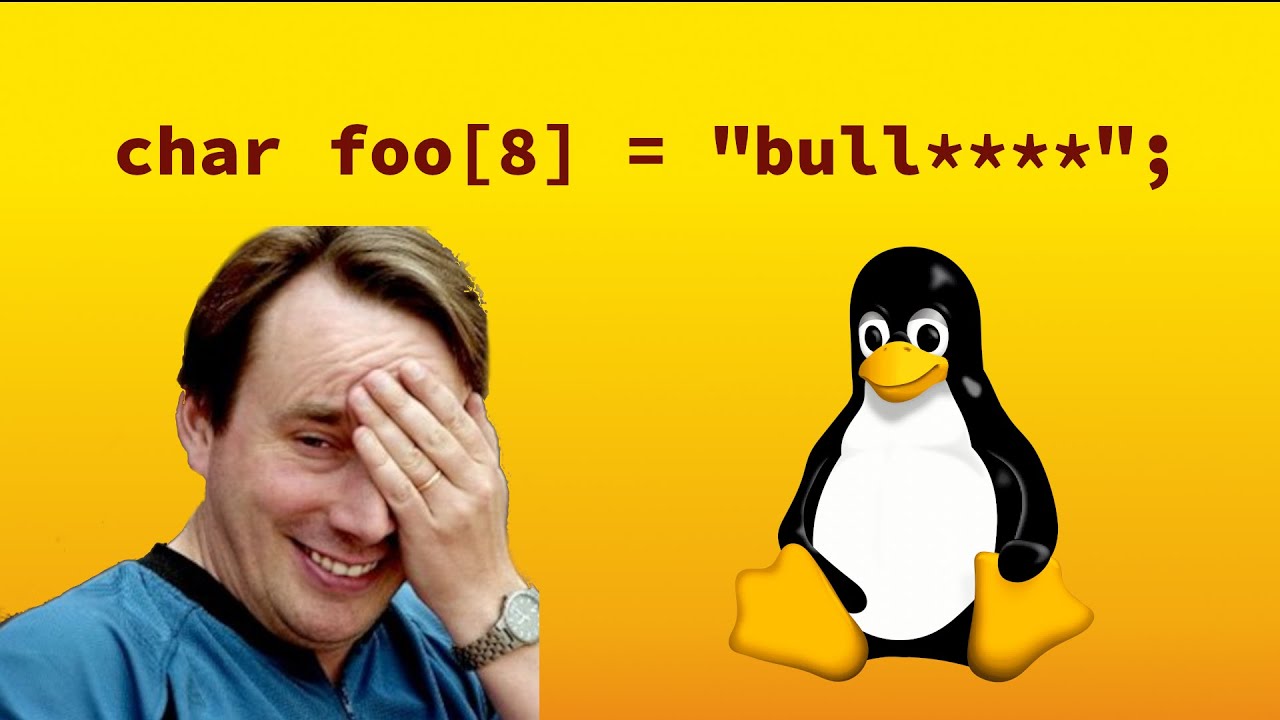The video discusses Linus Torvalds’ last-minute patches to fix Linux kernel build issues caused by GCC 15’s new -Wunterminated-string-initialization warning and the introduction of the non-string attribute, which inadvertently broke builds for users on older compilers and drew criticism from the community. It also highlights Linus’s preference for type-based annotations over variable-based ones and touches on GCC 15.1’s union initialization change, illustrating the ongoing challenges in compiler compatibility and kernel development.
The video discusses a notable mistake made by Linus Torvalds, the creator of Linux, related to the Linux 6.15 release candidate and a new compiler warning introduced in GCC 15. The warning, -Wunterminated-string-initialization, flags character arrays initialized without a null terminator, which can lead to bugs in C programs since strings in C rely on null terminators to mark their end. While this warning is generally helpful, there are legitimate cases in the Linux kernel where character arrays are intentionally not null-terminated, such as lookup tables, which led to the introduction of a special GCC attribute called attribute non-string to suppress false warnings in these cases.
Linus upgraded his development environment to Fedora 42, which shipped with a pre-release version of GCC 15 as the default compiler. This upgrade caused build failures in the Linux kernel because the necessary patches to handle the new warning and attribute were not yet merged into the mainline kernel. In response, Linus hastily applied his own patches just two hours before releasing the 6.15-rc3 kernel, aiming to fix the build issues. Unfortunately, these last-minute patches broke the build for all users still on GCC 14 or earlier, which was the majority, since GCC 15 had not been officially released yet.
The kernel community, particularly developer Key Cook, criticized Linus for pushing untested and uncoordinated patches at the last minute, which created merge conflicts and wasted effort by duplicating existing work already underway to address the GCC 15 transition properly. Linus defended his actions by pointing out that Fedora 42 was a major distribution shipping GCC 15 as the default compiler, so he considered it effectively released and felt compelled to fix the build immediately. However, the community emphasized the importance of coordination and testing to avoid breaking the build for most users.
Beyond this incident, the video touches on Linus’s disagreement with how the non-string attribute is implemented in GCC, as it applies to variables rather than types, requiring many annotations throughout the kernel code. Linus would prefer a type-based annotation to simplify this, but the current attribute design necessitates marking each relevant variable individually. Despite the blunder, the video notes that Linus is generally reasonable and that mistakes happen, encouraging the community to move forward constructively.
Finally, the video shares an additional update about GCC 15.1’s change in union initialization behavior, which now only zero-initializes the first member of a union by default, unlike previous versions that zeroed the entire union. This change, intended to align GCC’s behavior with Clang’s, ironically resulted in both compilers swapping behaviors simultaneously, maintaining incompatibility. The video highlights the complexities and challenges of compiler development and compatibility, concluding with a hope that these issues will be resolved to avoid breaking existing code.
